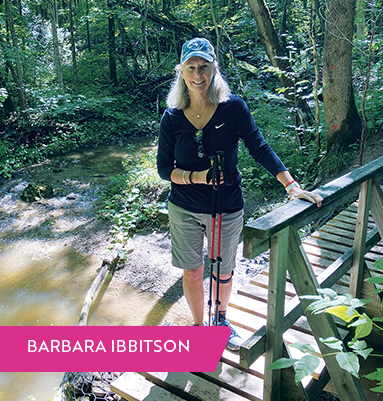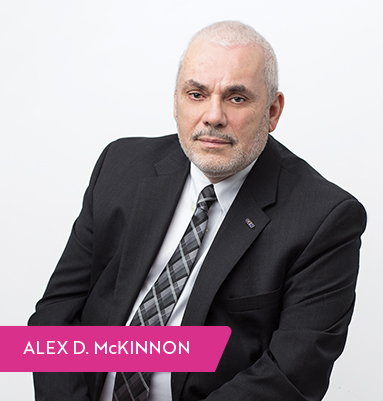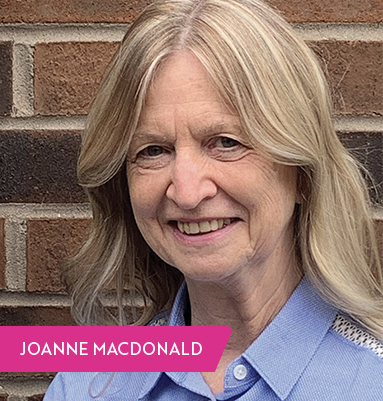Barbara Ibbitson is currently a Partner and the Clinical Director of Wright Rehab, a company that, for 20 years, has been providing Social Work and Rehabilitation Therapy to individuals, couples and families adjusting to the aftermath of a traumatic event or injury. Prior to merging with Wright Rehab, Barbara owned and operated Barbara Ibbitson and Associates. Barbara is an active member of The Ontario College of Social Workers and Social Service Workers and the Ontario Association of Social Workers. Barbara has a Bachelor of Social Work degree from the University of Western Ontario and received her Master of Social Work degree from the University of Toronto.
Barbara has a history of volunteer experience in many community programs and embraces opportunities to give back and be part of something that makes an impact. Barbara has lived with the effects of permanent spinal cord damage for the past 17 years. Her personal lived experience, in addition to her training and clinical background assists her in fostering resiliency and self-compassion in those she works with.

QHow did you first get involved with SCIO?
I was first involved with SCIO years ago as a therapist working with individuals with spinal cord injuries. I worked collaboratively with SCIO to ensure our clients had peer support and connection. My next involvement was as a client when Heather Hollingshead came to visit me when I was a patient at Lyndhurst. I had the opportunity to see the other side of SCIO as a client and not a therapist.
QWhat drove your engagement in SCIO to the level of wanting to serve on the board?
I met Leandre at a Wright Rehab Associates Appreciation Day where he was giving us the experience of a wheelchair rally. I spoke to him about my desire to do more and he introduced me to Ari and then to Stuart. SCIO was looking for board members at the time and we thought it would be a good fit.
QWhat has been the biggest success for SCIO during your tenure?
Divesting the attendant care service was a big success and done with such organization and purpose in order to insure all clients were taken care of through the transition. Advocacy is an ongoing success as we navigate the many barriers and work towards an accessible Ontario. I think surviving through COVID is also a huge success.
QWhat has been the most difficult challenge during your tenure?
I guess the obvious would be the pandemic. Such a difficult time for our clients and yet SCIO is carrying on and still providing quality service. A personal challenge would be meeting on zoom instead of in person.
QWhat advice would you give to someone who was thinking about joining the board or becoming a community member on a board committee?
If someone has a passion for helping individuals with spinal cord injuries, becoming part of an organized movement, whether as a board member or community member, it is a good choice. If anyone has hesitation I say, “Just Do It” You may be surprised at what you have to offer.
 Alex D. McKinnon is the Research Director for the United Steelworkers Union (USW), Canadian National Office. He has worked on staff with the Union for over 33 years. Alex was the first rank and file member hired to the USW’s National Office Research Department and, in 2013, became the first rank and file member to be promoted to the Research Director. Prior to that he was a millwright at Stelco LEW
Alex D. McKinnon is the Research Director for the United Steelworkers Union (USW), Canadian National Office. He has worked on staff with the Union for over 33 years. Alex was the first rank and file member hired to the USW’s National Office Research Department and, in 2013, became the first rank and file member to be promoted to the Research Director. Prior to that he was a millwright at Stelco LEW
Alex serves as a pension trustee on the new University Pension Plan (UPP), as well as a trustee on the multi-employer Steelworkers Pension Plan, and is Chair of the Canadian Energy and Related Industries Pension Plan (CERi). He also serves as a Trustee on a large multi-employer health and welfare benefit plan and on various committees for the Financial Services Regulatory Authority, including the Stakeholders Advisory Group and the Multi-Employer Pension Plan Committee as well as a joint provincial federal committee on defined contribution plans.
Alex is the past Vice-Chair and Chair of the University of Toronto Pension Plan and President of Multi-Employer Benefit Plan Council of Canada (MEBCO). Alex earned a bachelor’s degree (Economics) from Sir Wilfred Laurier University and holds the Certified Employee Benefit Specialist (CEBS) designation.
Alex is as a spinal cord peer support volunteer and was appointed to the Board of Directors of Spinal Cord Injury Ontario in 2018, where he serves as Treasurer and sits on the Governance Committee.
QHow did you first get involved with SCIO?
In 2013, I suffered an SCI as a result of pneumonia. The infection got into my blood and manifested itself in my spine at T4-T5 and ate is way thru my vertebrae as well as crushing against the spinal cord. It had taken almost 5 months to diagnose the problem and by the time I had my operation at Hamilton General, I had gone thru immense pain, although it was an “incomplete” sci. Fortunately, I was an inpatient at the Spinal rehab facility in Hamilton where I eventually was able to walk with a cane.
Although shy by nature, I was always speaking up when I saw things that needed to be addressed. I talked to everyone from the cleaners and food servers, nurses and doctors. And I talked to the other patients, and almost always with the guys the issue of sex came up, albeit it subtly. My numbness had caused me a lot of anxiety about this as well and eventually me chatting about issues found its way down to the Peer Support Co-ordinator, Ron Rattie who came to pay me a visit.
I like to say that his visit helped changed a direction in my life. He arranged a peer support volunteer to visit and I was amazed at how open this guy spoke about sex and his sci, what he had gone thru and what his life was like now.
QWhat drove your engagement in SCIO to the level of wanting to serve on the board?
As I was leaving rehab, Ron pulled me aside and asked me to be a peer support volunteer. I thought it was important to give back and having been exposed to a peer support volunteer and the impact that had on me. Then at an event in Hamilton, I had a chance to sit at dinner with Dr. Stuart Howe and the rest is history. I eventually was asked if I would be interested in serving on the Board of SCI Ontario and after an interview was accepted.
QWhat What has been the biggest success for SCIO during your tenure?
Even as a relatively new member, the Board has had several major issues to deal with and have responded to the challenges. Not only did we have to pivot to working remotely over the last year, we have helped guide the organization thru the challenge in how best serving the members of our community during this difficult time. A large part of our work depends on fundraising and even though many of the events have had to be cancelled or moved online, everyone has worked very hard to make sure we have the funds to continue our work and expanding the much-needed work of our advocacy campaign’s such as Pee For Free. In addition, we have launched Cortree, an online educational platform.
QWhat has been the most difficult challenge during your tenure?
Probably the most challenging, besides the pandemic, has been to divest away from providing attendant services in the Toronto area. Coming from Labour, my background is in protecting workers. Fortunately, we were able to transition this group into another quality organization, so no PSW lost their jobs or wages and they still continued to be represented by their same Union. But for SCIO, it allowed us to refocus our attention to issues affecting all our members across the province.
QWhat advice would you give to someone who was thinking about joining the board or becoming a community member on a board committee?
I don’t think there is a higher honour than giving back and trying to always leave the world in a better place. It sounds lofty but if we all just do a little bit to make things better, it is contagious. The Board and various committees are made up of people from all different socio-economic, educational and lived experience backgrounds. I am just a shy millwright from a steel plant, with an SCI, but I can and do make a difference. Our different voices are what makes our Board work so well. Your voice is important too.
 Joanne MacDonald started in the news business 38 years ago, first in radio, then transitioning to television as a story producer with Canada AM in 1983, then on to field producing for CTV National News in 1989. From there, Joanne headed to Ottawa, where she became the Bureau Manager then Deputy Ottawa Bureau Chief for CTV News. She continued to ascend the ranks, ultimately to the role of Vice-President, CTV News where she oversaw day-to-day operations and strategic vision for CP24 and CTV News Toronto.
Joanne MacDonald started in the news business 38 years ago, first in radio, then transitioning to television as a story producer with Canada AM in 1983, then on to field producing for CTV National News in 1989. From there, Joanne headed to Ottawa, where she became the Bureau Manager then Deputy Ottawa Bureau Chief for CTV News. She continued to ascend the ranks, ultimately to the role of Vice-President, CTV News where she oversaw day-to-day operations and strategic vision for CP24 and CTV News Toronto.
Joanne has helped shape some of Canada’s best journalists. Her leadership, news sense, and commitment to the highest news standards have contributed greatly to cementing CTV News as the powerhouse it is today.
Joanne is a trainer, media consultant and principal at Short Street Media. She sits on the Advisory Council of the Ryerson School of Journalism. She is the Business Manager for the Radio Television Digital News Association.
QHow did you first get involved with SCIO?
I was first introduced to SCIO in 2010 when a client at the time invited me to attend a gala dinner. At that dinner, I was exposed to some of the most impressive, creative and talented people I’d ever met – all of whom were living with a spinal cord injury. It challenged my notion of what life could be like after a catastrophic injury and it was incredible to see people’s enthusiasm, positivity and lust for life. That night, speaker after speaker approached the microphone to share their story and all credited SCIO (CPA Ontario at the time) as being instrumental in their recovery. I was struck by the impact the organization was making in people’s lives and it made me want to be a part of it.
It so happened that around that time I was generally interested in using my skills to contribute to a board role. It also happened that I was sitting at a table with Bill Adair, the CEO at the time, and he let me know that there was an open position on the Finance & Audit Committee and encouraged me to apply.
QWhat has been the biggest success for SCIO during your tenure?
I first got involved when a friend who was involved with SCIO suggested it. She introduced me to the media team. We hit it off immediately and had a great time brainstorming ideas about what we could do together. My husband and I did some media training, first with some of the provincial staff and then with the executive team. We both have media backgrounds but had never done direct training like this. We had a very productive and fun session, and it was a great opportunity to get to know everyone a little better. We were able to learn more about each of the individuals involved – their background and interests. It really provided a personal connection to the people I had been dealing with.
QWhat drove your engagement in SCIO to the level of wanting to serve on the board?
I really felt the organization was doing good work and thought with my media background I could contribute. From the very beginning all ideas were welcomed and the appreciation for what each person brought to the team was acknowledged. I loved the energy and passion of everyone I met. Getting involved felt like becoming part of a really cohesive team — committed to doing interesting work that had a direct impact in the lives of those involved with the organization.
QWhat has been the biggest success for SCIO during your tenure?
I grew up on a farm in southwestern Ontario, so I know firsthand how important it is to provide services and connections across the province — not just in Toronto. I think that outreach has been great.
QWhat has been the most difficult challenge during your tenure?
Obviously COVID has been the most difficult challenge for every person and every organization. It has been a huge challenge to provide service and human connection during a pandemic and offer physical and emotional support. The commitment of the staff to do this was evident from the early days last March.
QWhat advice would you give to someone who was thinking about joining the board or becoming a community
member on a board committee?
Absolutely you should do it — it is a very welcoming atmosphere — all ideas and suggestion encouraged. Lots of room for input and engaged discussion. There are many fun events to take part in — and fundraising activities that provide a connection but also reap great financial benefits for SCIO.






